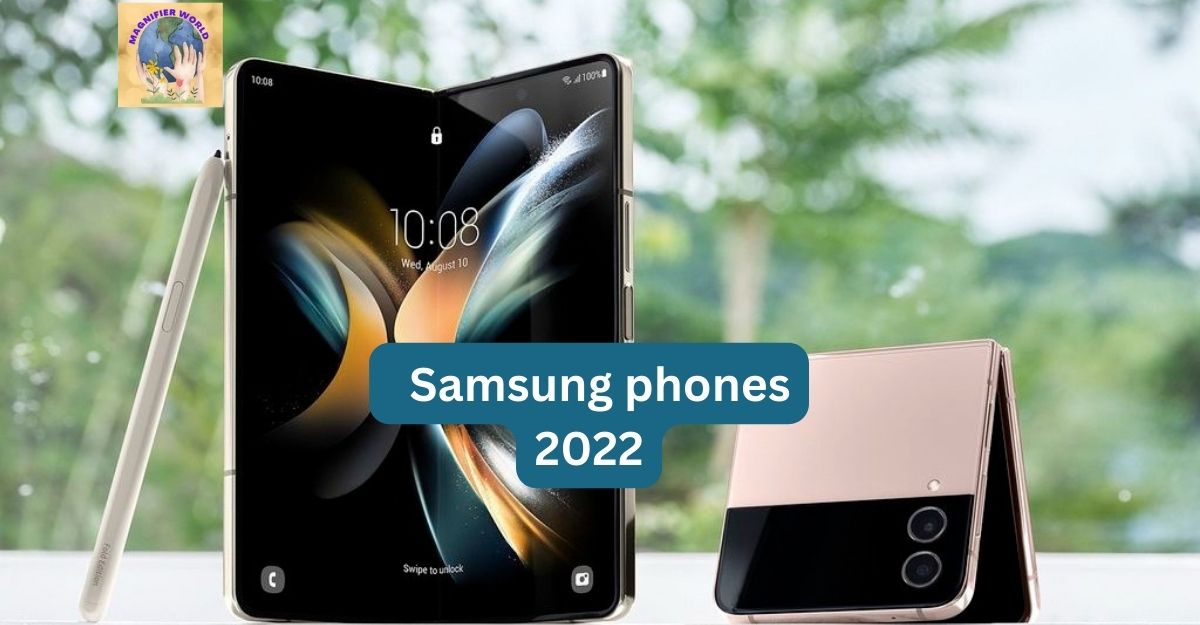Instant messaging applications have been integrated into our everyday lives in this era of unheard-of technological breakthroughs. Through its ability to link users from all over the world, the cross-platform messaging service WhatsApp is a pillar in the world of communication. WhatsApp stands out as a flexible and dependable platform in the context of our continued reliance on digital tools for social interaction. Its simplicity of use and regular upgrades guarantee that it will always be a strong and essential tool for people everywhere. WhatsApp has become an essential component of modern life since it has improved communication and brought people closer together while also reducing costs and increasing efficiency.
WhatsApp, which has more than two billion users, has several benefits that have revolutionised the way we interact but it also comes with some drawbacks.
This article examines the many facets of WhatsApp, exploring its advantages as well as disadvantages to provide a thorough analysis of how WhatsApp has affected contemporary culture.
The five most significant advantages of WhatsApp are listed below.
1: Real-time, instant communication
The greatest benefit of WhatsApp is its capacity to enable rapid, real-time communication. WhatsApp allows users to instantaneously send and receive messages, images, videos, and voice notes, in contrast to conventional text messaging and email. When you need to quickly convey important information or during crises, this tool is very helpful.
Users can know when a message has been delivered and read thanks to the “double-tick” mechanism. This removes the doubt about whether someone got your contact and guarantees that communications are read promptly. WhatsApp is an effective tool for staying in touch with friends and family, no matter where they are in the globe, thanks to its real-time chat features.
2: Cross-Platform Support
The cross-platform interoperability of WhatsApp is an additional important benefit. The program may be used on a variety of platforms because it is compatible with iOS, Android, Windows, and web browsers. You may use WhatsApp to interact with others without difficulty, regardless of their device, whether they are using an iPhone, an Android phone, a PC, or even another gadget.
Communication is made easier and you no longer have to worry about contacts using the same operating system or device as you thanks to its cross-platform capabilities. It is a flexible tool that may reduce the technological divide between people and promote more open and efficient communication.
3: Budget-Friendly Global Communication
WhatsApp provides an alluring benefit for both consumers and businesses: affordable global communication. Traditional international phone calls and SMS messages may be pricey, particularly when contacting individuals abroad. WhatsApp makes use of the internet to deliver messages, which drastically lowers the price of international communication.
You may communicate with contacts anywhere in the globe by sending messages, making audio and video conversations, and sharing media files as long as you have a steady internet connection. All of these actions are free from additional international fees. Businesses that must maintain frequent communication with clients, partners, or staff who are located abroad would especially benefit from WhatsApp’s cost-saving features.
4: Document and multimedia sharing
One of WhatsApp’s unique characteristics is its ability to share multimedia. Users may send a variety of multimedia items, including papers, images, videos, and voice messages. Because of its adaptability, WhatsApp is a wonderful tool for transferring not just private moments but also significant data and files.
Sharing multimedia information is a terrific method to remain in touch with loved ones for personal use by sending them images and movies. It enables the interchange of crucial papers and media for enterprises. Users of WhatsApp may transmit PDFs, Word documents, spreadsheets, and other types of documents using the app’s document-sharing function. This feature streamlines business communication and makes it easier to share files important to your job.
5: Group conversations and cooperation
WhatsApp isn’t just good for one-on-one talks; it’s also great for group conversations. You can establish and manage group conversations using the app, and you can add profile images and user names to personalize them. This function is very useful for team tasks, family get-togethers, and keeping track of friends’ schedules.
WhatsApp group conversations are incredibly useful for cooperation in corporate situations. Team members may communicate in real-time about projects, share information, and give updates, which increases productivity and efficiency. WhatsApp is a secure medium for confidential business communications because of its encryption, which also guarantees the confidentiality and privacy of these group talks.

Here are WhatsApp’s top five disadvantages.
1: Privacy Issues
In the digital era, privacy is becoming a bigger issue, and WhatsApp has not been exempt from debates over data protection. The choice made by WhatsApp in 2016 to share user data with its parent firm, Facebook, sparked a heated discussion about user privacy. Although WhatsApp eventually changed its mind, this plan did raise users’ concerns about the security of their personal information.
Furthermore, WhatsApp’s end-to-end encryption is promoted as a security benefit but has come under fire for allegedly creating a haven for unlawful activity. This encryption has been used by criminals to enable unlawful transactions, making it hard for law authorities to keep track of and look into such activity.
The metadata collected by WhatsApp raises yet another privacy issue. Even though message content is encrypted, the platform gathers information, such as contact lists and timestamps, that may be utilized to understand user behaviour and relationships.
2: Informational errors and fake news
Due to its end-to-end encryption, WhatsApp has become a haven for the dissemination of false information. Since messages published on the site are encrypted, it might be difficult to trace the source of false information. False information, rumors, and hoaxes can so spread quickly among users, causing them to become alarmed and perplexed.
Additionally, WhatsApp’s capacity to properly monitor and thwart the spread of false information is constrained by end-to-end encryption. Even while WhatsApp has implemented solutions like message forwarding limitations to address the problem, it is still very difficult to stop the spread of false information.
Misinformation on the network has caused real-world events, such as mob violence and lynchings based on false rumours, in nations like India where WhatsApp is widely used. This demonstrates how urgently WhatsApp must find better solutions to this issue.
3: Limited Features for Business Users
As a special service for businesses to engage with their clients, WhatsApp launched WhatsApp Business. This has been a useful feature, although it still has certain drawbacks. Small and medium-sized firms could find it sufficient, while bigger companies with more complex customer service requirements might find themselves wanting.
Advanced customer relationship management features, automation tools, and integration possibilities found in specialized customer service and marketing systems are absent from WhatsApp Business. This can make it difficult for companies to offer a smooth and effective client experience, particularly as they grow.
Additionally, WhatsApp Business imposes limitations on communications, such as the need that companies to react to client inquiries within 24 hours. Failure to do so might result in communications restrictions, which could obstruct effective consumer engagement.
4: Overwhelming and distracting
WhatsApp is a useful tool for communication, but it may also provide excessive distractions. Constant message notifications might make it difficult to concentrate, which reduces productivity and raises stress levels. Checking messages often, especially in group conversations, can be distracting and make it challenging to focus on challenging tasks.
Additionally, societal pressures and expectations may arise as a result of WhatsApp’s “Last Seen” function. Even when it’s not convenient, people could feel pressured to reply to messages right away to prevent coming out as impolite or uncaring. Those who have difficulty setting boundaries or who have demanding professions may find this to be very unpleasant.
5: Information overload and Dependence
Due to WhatsApp’s ease, many people now rely heavily on it for both personal and business communication. While this may be helpful, it also encourages reliance. WhatsApp users may feel alone and dissatisfied when the service is interrupted by outages or technical problems, as it has in the past. Information overload may also be exacerbated by WhatsApp’s continual flood of communications. Especially in group conversations, users may feel overloaded by the sheer amount of messages. It may become difficult to stay organized, manage alerts, and keep up with conversations inside the app, which can cause tension and worry.
Conclusion
Without question, WhatsApp has transformed how we interact, eliminating distances between individuals and bringing them closer together. Its benefits, including end-to-end encryption and affordable international texting, have made it a mainstay of contemporary communication. Nevertheless, it is not without flaws. Users of the app face significant difficulties due to privacy issues, the dissemination of false information, and the addictive nature of the program.
It is crucial to create a balance between utilizing WhatsApp’s advantages and managing its drawbacks as we traverse the digital world. Users must use prudence, critically assess the material they come across, and be aware of any potential negative effects that excessive app use may have on their health. Furthermore, ensuring that WhatsApp’s benefits are available to as many people as possible requires society to overcome the digital divide.
WhatsApp is essentially a two-edged sword, a tremendous technology with the capacity to unite or divide, to inform or misinform. In our constantly changing digital environment, it is up to us as users and society as a whole to use this instrument intelligently, maximizing its benefits while minimizing its drawbacks.
FAQs based on the advantages and disadvantages of WhatsApp
1. What is the primary benefit of using WhatsApp?
WhatsApp enables you to communicate with friends and family for free online via text messages, audio and video conversations, and the sharing of multimedia.
2. Does WhatsApp use end-to-end encryption, and if so, what are the benefits?
Yes, WhatsApp employs end-to-end encryption, which increases privacy and security by ensuring that only you and the receiver can see your messages.
3. Is WhatsApp cost-effective for international calls, and may I use it for those?
Yes, WhatsApp provides cost-effective worldwide connectivity by providing free international calls via Wi-Fi or data.
4. What are WhatsApp’s drawbacks?
Because WhatsApp requires an internet connection, using it in places with low or no internet connectivity might be difficult.
5. Can WhatsApp be used for professional communications?
WhatsApp Business is a fantastic option for business communication because it has features like business profiles and automatic answers.
6. Does WhatsApp raise any privacy issues?
Data sharing with Facebook, WhatsApp’s parent firm, has historically caused privacy concerns for the company.
7. Can I use WhatsApp concurrently on several devices?
WhatsApp now supports many devices, enabling you to use it on other gadgets without having to connect your phone.
8. What are the benefits of WhatsApp’s status option?
WhatsApp Status gives the app a social media component by allowing you to post updates, pictures, and videos with your contacts for 24 hours.
9. How much bandwidth does WhatsApp consume for calls and messages?
WhatsApp uses a small amount of data, especially for text messaging. Video calls, though, can use even more bandwidth.
10. Can I back up the material and talks I have on WhatsApp, and why would I want to?
Your discussions and media may be backed up to the cloud. When switching between devices or in the event of data loss, it helps recover your chats.





